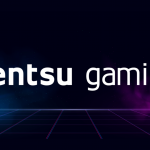Dentsu is pleased to launch its latest whitepaper, ‘Exploring Future Insights’, a comprehensive study on the evolving concept of friendship from the perspective of Gen Z across seven Asian markets – Japan, Taiwan, Indonesia, Thailand, Vietnam, The Philippines and Malaysia.
The 150-page report is published by dentsu Youth Research Unit, Wakamon, a planning and creative unit with a focus on building a better understanding of young people with the ultimate goal of promoting a harmonious relationship between the younger generations and society.
By next year, Gen Z is expected to represent 25% of APAC’s population, and this growing demographic has significant decision power which has seen brands funnelling millions of advertising dollars to generate brand loyalty.
It is a generation that has grown up in the digital world, is more conscious social and environmental justice than any generation before, leans in greatly into technology and its evolution and constantly finding ways to improve their experiences.
Through its Tsugikuru method of inquiry (Tsugikuru may be loosely translated as “foresight” or “what comes next” and is a highly collaborative and iterative method of qualitative inquiry), Wakamon regularly generates Gen Z insights which are employed in the service of dentsu’s clients for marketing, business transformation consulting and other services.
From the past’s inescapable or ‘eat from the same pot’ friendships to today’s Metaverse and AI friendships, ‘Exploring Future Insights’ report aims to provide valuable insights for planners who are interested in understanding the values and perceptions of this next generation, as well as serve as a resource for businesses seeking to implement people- driven insights to steer business transformation.
In this exploration of friendship across seven Asian markets, the report uncovers insightful nuances and variations in how this fundamental human connection is perceived. Here are some of the key highlights:
1. Digital transformation and social interaction
- Generation Z, growing up in the era of technology, smartphones and social media, has redefined the landscape of friendship. Unlike a couple of decades ago, where phone calls and letters were the primary modes of communication, today’s kids seamlessly navigate virtual friendships.
- The prevalence of screens doesn’t necessarily imply disconnection; rather, it reflects a new form of socializing.
2. Premise of relationships dissolve due to “Internet×COVID-19 Pandemic”
- With the usage of social media, online games, and messaging tools, Gen Zs have been exposed to diverse values, beyond the restrictions of geographics, time, religion etc.
- This view of friendship that differs from the previous generation’s norm of “this is how it must be”, was further amplified during the covid-19 pandemic, and is now considered mainstream.
3. Friendship goes from a “solid” to a “liquid” form
- Solid friendships refer to relationships based on real connections – such as region of residence, religion, and group affiliation; fluid friendships refer to those that develop flexibly according to the purpose at the time, such as “having the same hobbies” or “having the same dreams and goals”.
- This shift from solid to fluid friendships are seen to be accelerating across all markets.
4. New ways of marketing and providing support towards new-age relationship challenges
- Study reveals increasing challenges of having to make connections voluntarily, of not being understood by the older generation, and difficulty in finding “one’s identity”
- Experiential consumption that leads to the formation of identity, community marketing that supports connections and co-creation marketing with user participation can be utilized in marketing.
In summary, the report highlights both the evolution of friendship in the digital age and the enduring principles that underpin meaningful connections. Since the pandemic, individualistic and liberal values, as well as what was previously viewed as “different” by the older generation, are now considered the new norm.
While these create new community and marketing opportunities, it is clear – that be it through screens or face- to-face encounters, friendship remains a vital part of the human experience.
MARKETING Magazine is not responsible for the content of external sites.









